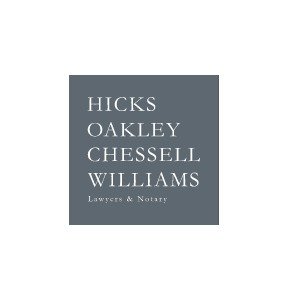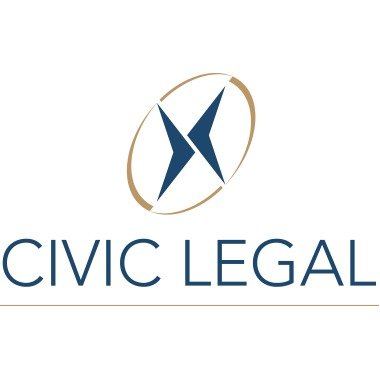Best Land Use & Zoning Lawyers in Australia
Share your needs with us, get contacted by law firms.
Free. Takes 2 min.
Free Guide to Hiring a Real Estate Lawyer
Or refine your search by selecting a city:
List of the best lawyers in Australia
About Land Use & Zoning Law in Australia
Land use and zoning law in Australia is a complex and nuanced area of legal practice that governs how land is developed and used across regions and states. Each state and territory has its own planning and zoning regulations, which aim to balance urban development with environmental conservation, community needs, and economic growth. These laws establish zones for residential, commercial, industrial, and agricultural use, as well as special regulatory areas, such as heritage or conservation zones. Understanding the intricacies of these regulations is crucial for any property owner, developer, or stakeholder involved in land transactions or planning.
Why You May Need a Lawyer
There are numerous scenarios where someone might require legal assistance in the realm of land use and zoning:
- Development Applications: Navigating the approval process for new builds, renovations, or land-use changes often involves complex applications and compliance with local planning laws.
- Zoning Disputes: Disputes with neighbors or local councils about land use can arise, requiring legal mediation or litigation.
- Environmental Concerns: Legal expertise may be needed for developments impacting the environment to ensure compliance with environmental laws and regulations.
- Heritage Listings: Properties on heritage registers come with additional legal obligations that can affect renovation or development plans.
- Compulsory Acquisition: When government bodies wish to acquire private land for public use, a lawyer can help negotiate fair compensation.
- Land Subdivision: Dividing land into parcels for sale or development often involves legal processes that must align with council plans and policies.
- Appeals and Objections: Legal advice may be necessary for lodging appeals against council decisions or objections to proposed developments.
Local Laws Overview
Australia's local land use and zoning laws are varied, reflecting the unique environmental, cultural, and economic landscapes of each jurisdiction. Key aspects include:
- State and Territory Planning Acts: Each state and territory has specific legislation governing land use and development.
- Local Government Regulations: Councils implement and enforce zoning laws, which can vary significantly within regions.
- Environmental Protection Laws: Federally and locally imposed laws require developments to undergo environmental assessments and adhere to sustainability standards.
- Cultural Heritage Protection: Laws protect Aboriginal and Torres Strait Islander heritage sites, affecting land use and development approvals.
- Fire Safety and Building Codes: New builds and renovations must comply with national construction codes and local fire safety regulations, impacting zoning compliance.
Frequently Asked Questions
What is zoning?
Zoning refers to the process of dividing land into zones for different purposes, such as residential, commercial, or agricultural, to guide how property can be used or developed.
How can I find out the zoning regulations for my property?
You can check the zoning regulations for a specific property by contacting your local council, or accessing online zoning maps available on many local government websites.
What are permissible uses in a residential zone?
Permissible uses in a residential zone typically include detached houses, townhouses, and parks. However, this can vary, so it’s essential to consult local zoning regulations for specific conditions and exceptions.
What is a development application?
A development application (DA) is a formal request for permission to carry out proposed development, submitted to the local council or relevant planning authority.
How long does the approval process usually take for a development application?
The approval process can vary; it can take anywhere from a few weeks to several months, depending on the complexity of the proposal and its compliance with planning regulations.
Can zoning be changed?
Zoning can be changed, but it typically involves a legal process that includes applications, reviews, and often public consultations or hearings.
What should I do if I disagree with a council decision about zoning?
If you disagree with a council zoning decision, you may have the option to appeal or object, often with the assistance of a lawyer specializing in land use and zoning law.
What factors can impact the decision on a development application?
Factors may include compliance with zoning laws, environmental impact assessments, community objections, and adherence to building codes and safety standards.
What are "heritage overlays"?
Heritage overlays are planning controls applied to areas or properties deemed to have historical, cultural, or architectural significance, imposing certain restrictions on development to preserve them.
Do environmental laws impact zoning and land use?
Yes, environmental regulations often impose additional requirements on land development, requiring assessments and permits designed to protect natural ecosystems and resources.
Additional Resources
For more information and assistance, consider the following resources:
- Department of Planning, Industry, and Environment (NSW): Offers guidelines and resources on planning and land use in New South Wales.
- Planning Institute of Australia: Provides professional resources and advocacy for sustainable planning and development practices.
- Local Councils: Contact the relevant local council for precise zoning and land use information in your area.
- Environmental Defenders Office: Non-profit organization offering legal support on environmental issues, including land use matters.
Next Steps
If you require legal assistance in land use and zoning, consider the following steps to proceed:
- Research: Begin by gathering information about the specific land use or zoning issue you are facing, reviewing local regulations and past council decisions.
- Consultation: Arrange a consultation with a lawyer specializing in land use and zoning to discuss your situation and explore potential legal strategies.
- Documentation: Prepare and organize any necessary documents, such as property deeds, zoning maps, and correspondence with local councils, to assist with your legal consultation.
- Legal Representation: If required, hire a legal representative to navigate any formal appeals or disputes, ensuring your interests are effectively represented.
- Follow-Up: Stay informed and engaged throughout the legal process, maintaining communication with your lawyer and responding promptly to any requests or updates.
Lawzana helps you find the best lawyers and law firms in Australia through a curated and pre-screened list of qualified legal professionals. Our platform offers rankings and detailed profiles of attorneys and law firms, allowing you to compare based on practice areas, including Land Use & Zoning, experience, and client feedback.
Each profile includes a description of the firm's areas of practice, client reviews, team members and partners, year of establishment, spoken languages, office locations, contact information, social media presence, and any published articles or resources. Most firms on our platform speak English and are experienced in both local and international legal matters.
Get a quote from top-rated law firms in Australia — quickly, securely, and without unnecessary hassle.
Disclaimer:
The information provided on this page is for general informational purposes only and does not constitute legal advice. While we strive to ensure the accuracy and relevance of the content, legal information may change over time, and interpretations of the law can vary. You should always consult with a qualified legal professional for advice specific to your situation.
We disclaim all liability for actions taken or not taken based on the content of this page. If you believe any information is incorrect or outdated, please contact us, and we will review and update it where appropriate.
Browse land use & zoning law firms by city in Australia
Refine your search by selecting a city.
















